
Intellicast S3E27 – A NEXT 2020 Preview, Sports, and WFH Fails
May 29, 2020
Intellicast S3E28 – Vignesh Krishnan, CEO of SampleChain
June 4, 2020In our latest round of research-on-research, we wanted to learn more about the public’s perception around the gig economy. The term “gig economy” refers to a free market system in which traditional businesses hire independent contractors, freelancers, and short-term workers to perform individual tasks, assignments, or jobs. The term comes from the world of the performing arts in which musicians, comedians, etc. are paid for their individual appearances, called “gigs.”
We approached this research starting with asking if respondents were familiar with the term “gig economy.” If the respondent said yes, we asked them how they define gig economy and if they work in the gig economy. If the respondent said no, we gave them the definition and asked them if they had ever considered working in the gig economy.
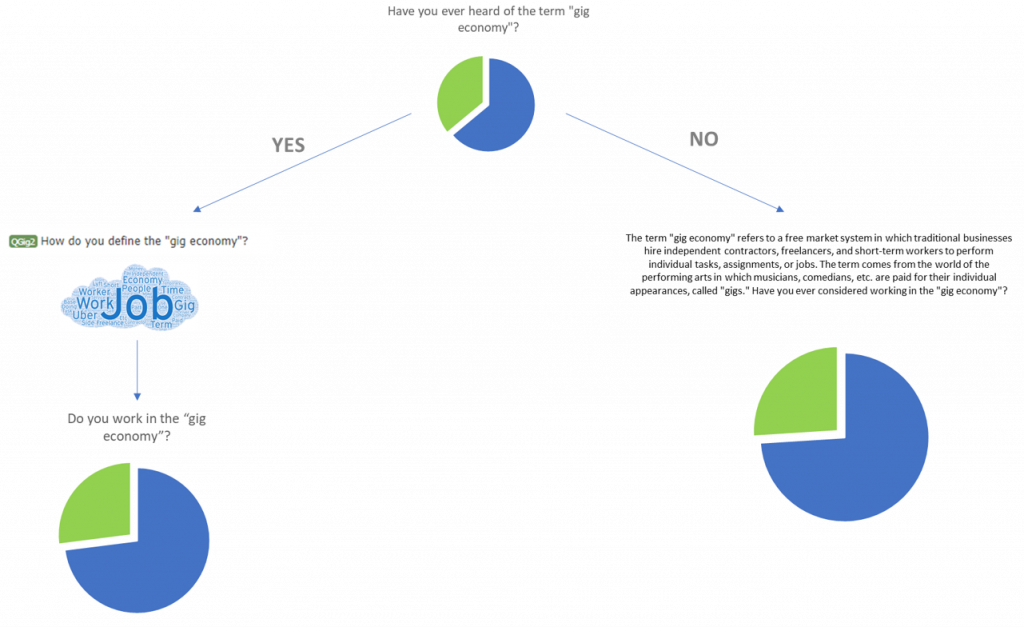
Have you ever heard of the term “gig economy?”
Only 36% of our respondents said that they had heard of the term “gig economy.” However, many of those respondents might not know what it means or have the correct definition.
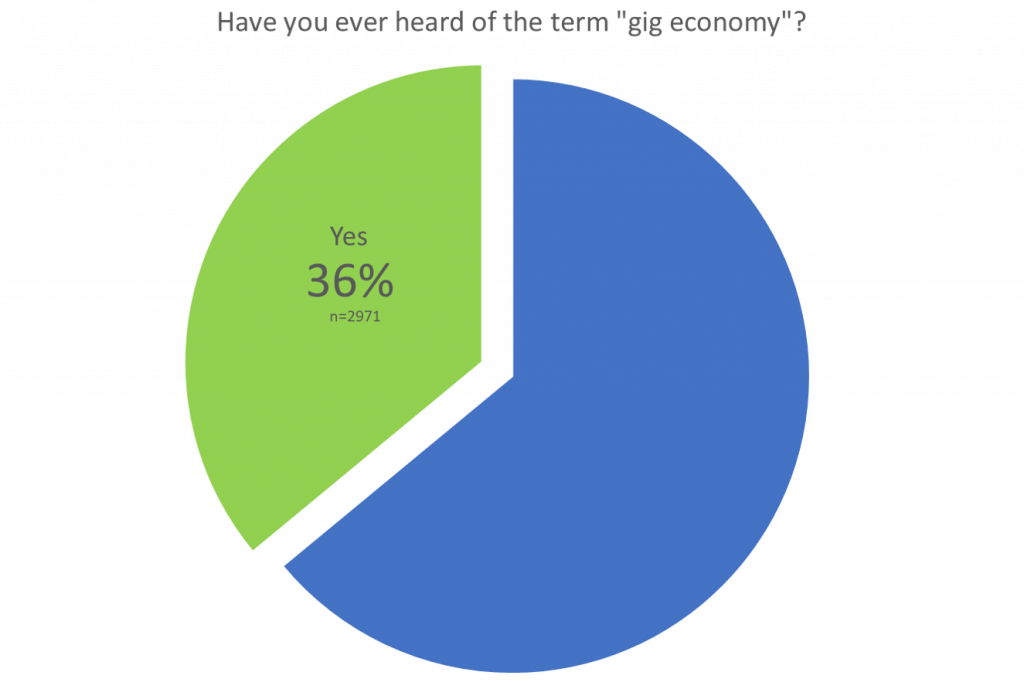
The age group with the highest recognition of the term gig economy was the 35-44 age range. Overall, younger and older people are less familiar with the term than middle-aged people.
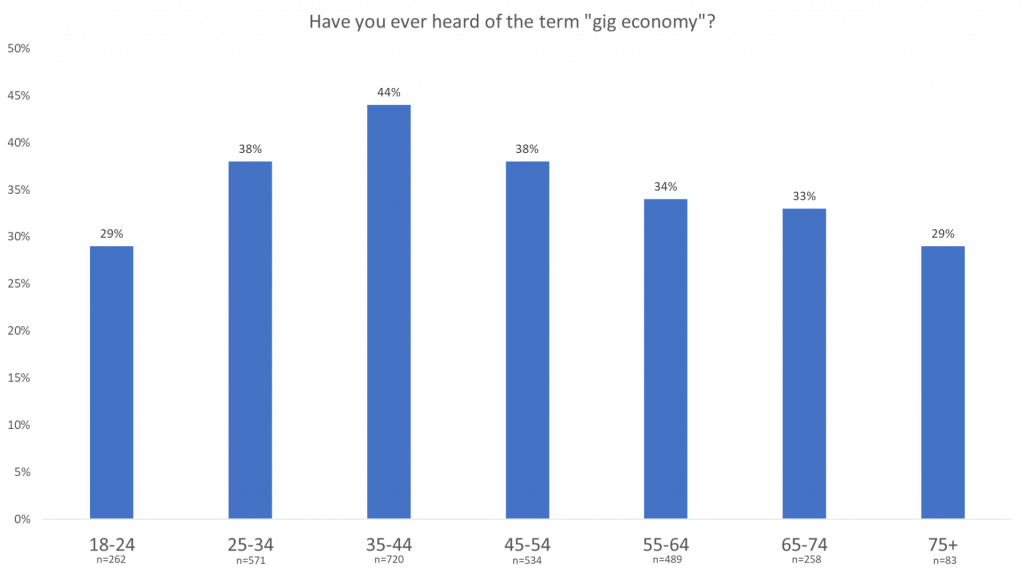
Those with a higher income are also more familiar with the term. This is interesting because it seems that lower income households would be more familiar with the term, but this may be because they call it something other than a “gig economy,” such as a side hustle.
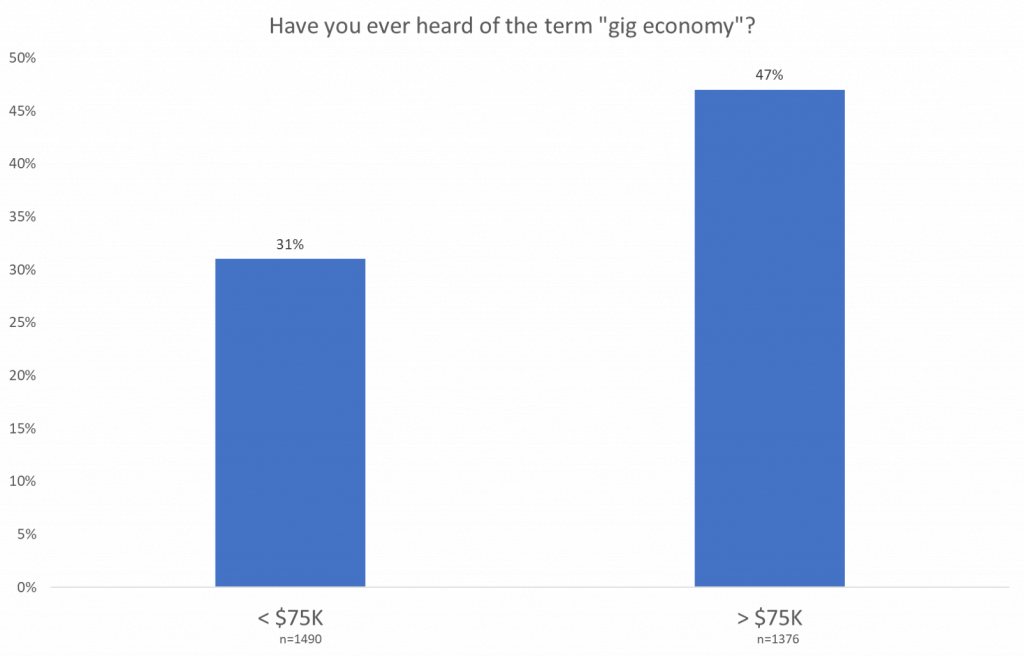
Males are more familiar with the term than females by 17%.
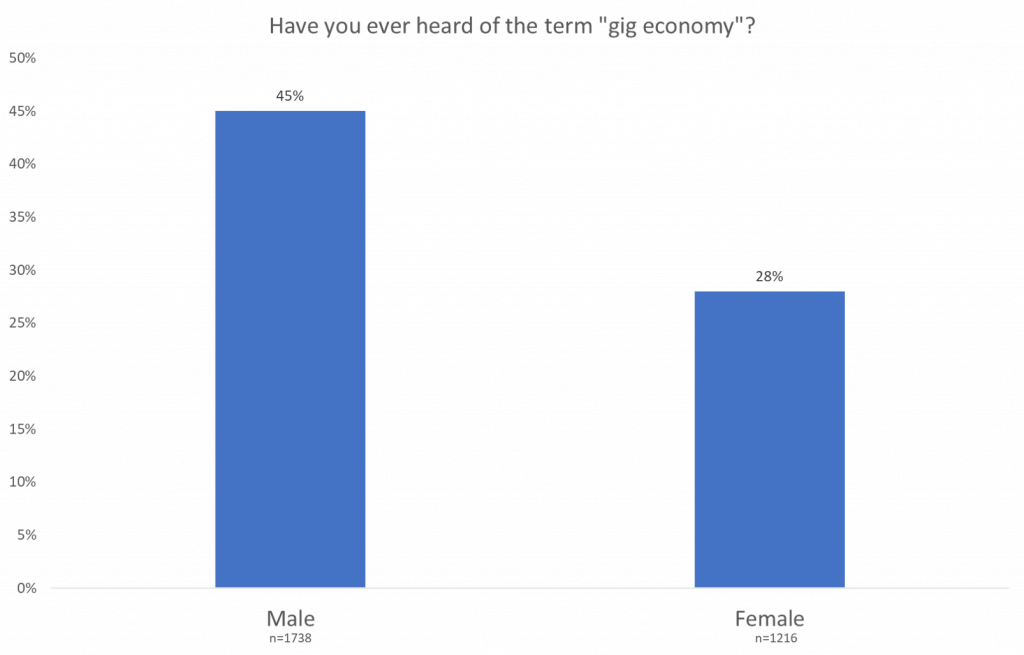
How do you define the “gig economy?”
When we asked respondents how they defined the gig economy, we understood that they might not know the correct definition. Here, we have compiled some of their definitions, which fall into one of the following categories:
Unsure:
“I have heard of it but not sure how to define it.”
“I have heard that, but do not know what it is.”
“I’ve heard of it but don’t know what it is.”
“I’ve heard the term, I do not know what is means, sorry.”
“Not sure.”
“Not sure. Jobs created online?”
“I have no idea – I have just heard of the term before.”
“Don’t know. Have only heard it mentioned.”
“Not really sure how to define it; I just know the word.”
Online/Online Currency:
“I can’t really say that I understand it – but I think it refers to online commerce.”
“Internet based.”
“People who perform work online for others.”
“Online side jobs.”
“Online currency.”
“The gig economy is based on flexible, temporary, or freelance jobs, often involving connecting with clients or customers through an online platform.”
“When you use an online platform to get business i.e.: Airbnb, Uber.”
“Freelance work through an online platform.”
“It refers to internet business.”
“You get paid for doing jobs online.”
“Task based online work.”
“Is a system where a Gig worker is hired by an independent contractor to do some online gigs.”
“Based on online crypto currency.”
“Online, freelance type of jobs.”
“Remote paying work.”
“Using technology to make money.”
“Doing odd jobs usually with an app.”
“Online sales.”
Other:
“Jobs that are in addition to a person’s regular job such as being an influencer, the mail order business.”
“Exchange of income based on individual jobs rather than an hourly income from an employer.”
“Self-employed small businesses, or hourly contract workers.”
“People doing small, temporary jobs for money.”
“Flexible, freelance job.”
“People with odd jobs that work for themselves.”
“Working for yourself and not a large company doing small jobs for others.”
“Basically, being an independent, individual worker with no or virtually no benefits and earning minimum wage to just a bit above.”
“Side gigs when you need money and don’t have a job.”
“A job that is not in an office or with a single company.”
“Part time or side jobs to earn extra income.”
“Side hustles.”
“Doing small jobs and getting paid the same day.”
“Individuals working independently at jobs that fit their time and skill; things like Uber, Lyft, meal delivery, certain services, etc.”
“Earning money by doing small tasks that are sent to you based on your interests and location. Usually a one-time job.”
Do you work in the “gig economy?”
27% of the respondents who had heard of the gig economy said that they work in the gig economy.
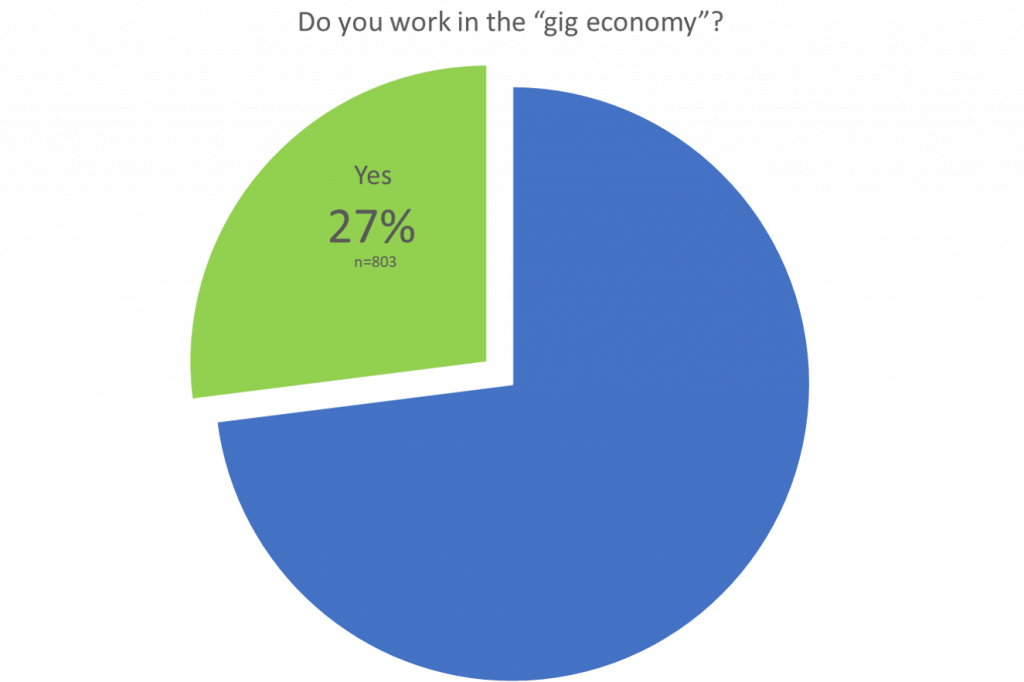
Additionally, we found that that many more younger people work in the gig economy than older people. This could possibly be because younger people are just starting out and trying to find new ways to make money, whereas older people are more likely to have a steady, established job.
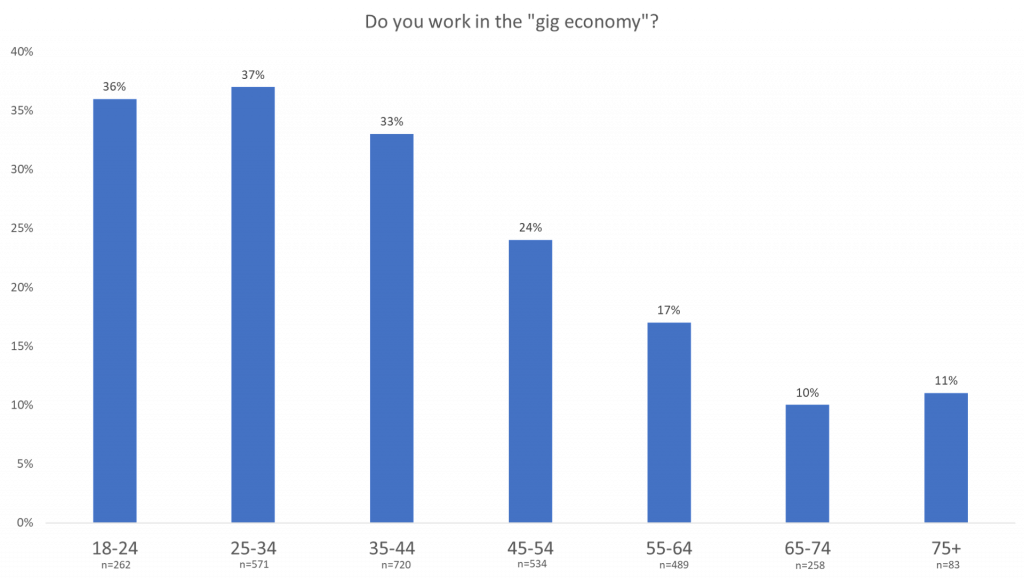
The number of males versus females that work in the gig economy is fairly equal, with just 3% more males indicating they work in it than females.
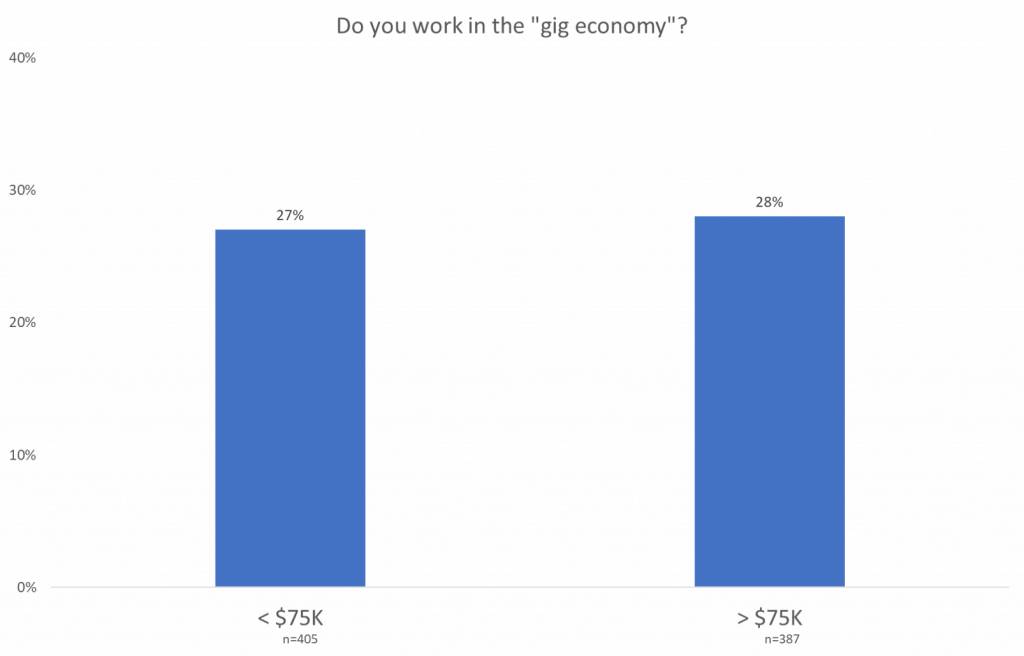
Have you ever considered working in the “gig economy?”
26% of respondents who didn’t know what the gig economy was said they have considered working in the gig economy after being given the definition.
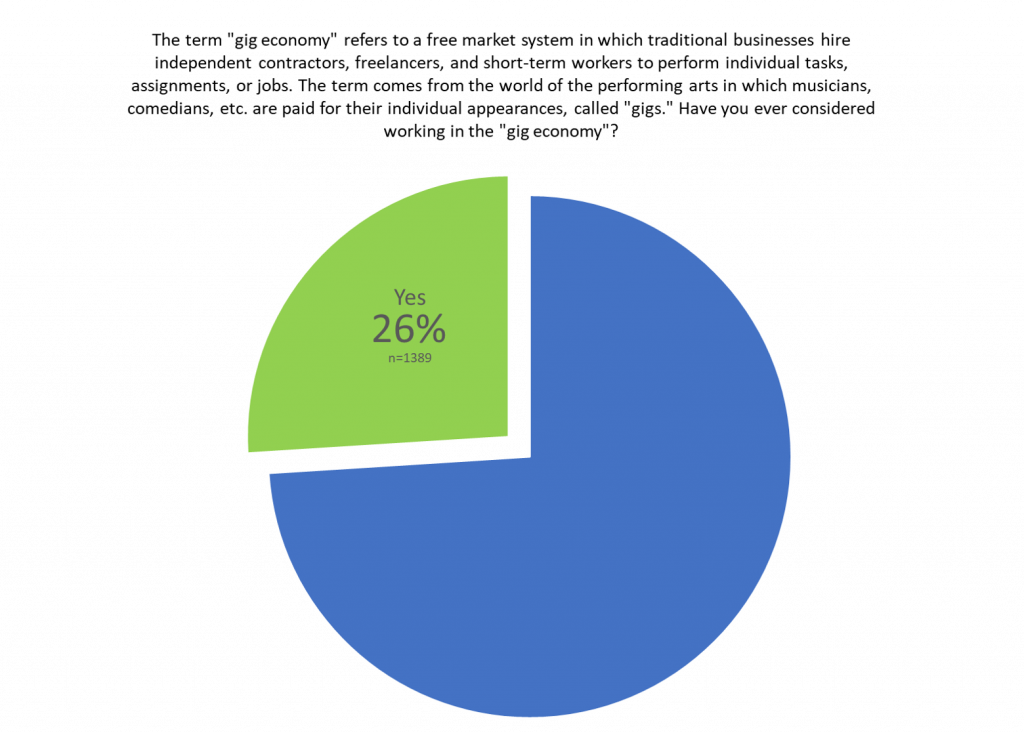
The number of respondents who have considered working in the gig economy decreases the older the respondent.
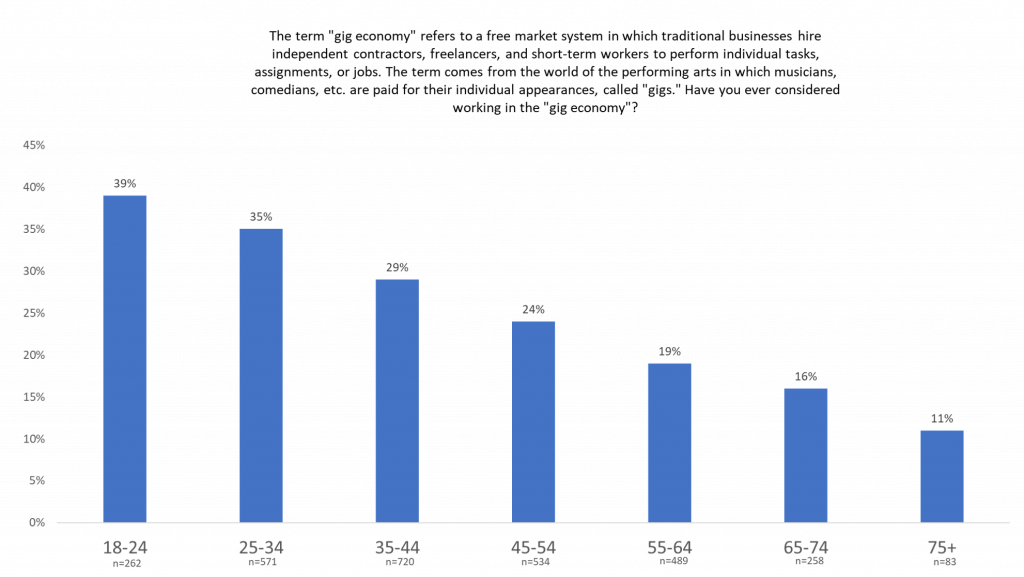
Those respondents with a higher income are slightly more likely than those with a lower income to have considered working in the gig economy, which is consistent with the larger number of respondents familiar with the term “gig economy” with higher incomes.
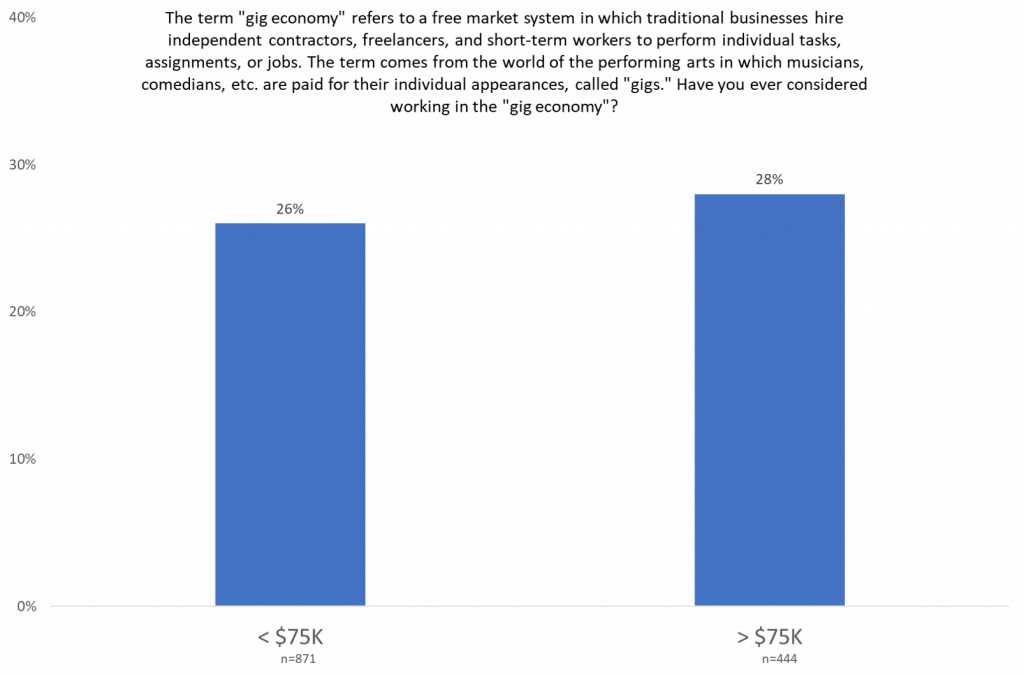
To read more of our blogs from The Sample Landscape, follow these links below:
Respondent Experience and How It Can Be Improved




